You know you are on to a good thing when you see one episode of a TV serial, conclude that this is the best yet and difficult to top, and 2 days later, along comes another episode that makes you say exactly the same thing all over again. Jodha Akbar passed this test today, and did it in style.
Today's episode was as different from the crackerjack one on Monday as chalk from cheese. It did not crackle with tension as we held our collective breaths for Jalal to escape unscathed. Unlike yesterday, there was no derring do, no breakneck horseback rides thru the dark countryside, a desperately wounded man clinging for dear life to his master and protector.
There was no 1 against 20 swordfight, as Jalal drew on all his reserves of sheer strength (it is said that among the Mughal emperors, it was only Babur and Akbar who had tremendous physical strength, though Babur was a short man and Akbar only of medium height) , skill and lightning reflexes to put paid to the whole lot, and then ride off, leaving a neatly stacked pile of bodies for Suryabhan Singh and Jodha to find.
If today too the narrative crackled and seethed, it was with subterranean intrigues , as two fierce opponents - Mahaam Anga and Bairam Khan - feinted and circled each other as each strove for supremacy in her/his hold on Jalal. He is their be all and end all, for both exist only thru him and his status as the Shahenshah, and without him, they would be nothing. By episode end, I, being a bit of a female chauvinist, was greatly pleased when Mahaam Anga proved, beyond a shadow of a doubt, that in political intrigue as in its domestic equivalent, the female of the species is deadlier than the male.
She began perfectly, by getting in on the first base, ready to greet Jalal on his arrival at the camp, whereas Bairam Khan goofed up be being out riding at this vital moment. The smile that lit up Jalal's face when he spotted her, the first time I have seen him smile with genuine pleasure, and the gentle, affectionate homage he pays her, kissing her hands and then carrying them to his eyes, must have strongly boosted Mahaam Anga's standing in the minds of the onlookers, that is to say the whole camp.
She then drives her advantage home with stories about the lep, and gentle but unmistakable reproaches for his having neglected her of late. That he apologises unreservedly is proof of her hold on him. By the end of the lep session, with Jalal's head in her lap, Mahaam Anga is poised for battle against her bete noire, Bairam Khan.
Fortune, it is said, favours the brave, and perhaps Lady Luck has some female solidarity as well, for with the arrival of the hakim, Mahaam Anga sees the opening she was seeking fall unexpectedly into her lap. She strikes like a rattlesnake, swift and sure. It is proof of her tactical skills that she brings out the whole Zaheer atrocity without showing her hand at all- she does not even mention Bairam Khan's name.
As Jalal explodes in rage and anguish at Zaheer's condition, the impenetrable barrier that Bairam Khan had built around the Shahenshah, allowing access to no one but himself, suffers its first ever breach.
The scene that follows, between Jalal and his Khan Baba, is a remarkable display of rigidly controlled but still barely suppressed fury on Jalal's side, and a desperate rearguard action on Bairam Khan's, ending in a last ditch attempt to to salvage the situation as he kneels at Jalal's feet and offers an eye for an eye as retribution. Jalal refuses to punish him, but is unyielding in his condemnation of what was done to Zaheer, and as he turns away from his mentor of many years, one can practically hear the door closing in Bairam Khan's face.
He pays the price for imagining that his pupil could be forever controlled and manipulated, like a puppet on a string, even after he had grown in years, stature and wisdom. It was brought home to him, suddenly and without warning, that power by proxy is fundamentally unstable. And that it never pays to take an emperor, even one so young, for granted. It was striking that it was only today, confronted by a stony-faced, ice cold Jalal, that it occurred to him that the Shahenshah should be addressed as Aap. It was, unfortunately for him, too little too late. The downward slide has begun, and the bell is tolling for Bairam Khan. Mahaam Anga, against whom he rages impotently, is only an instrument in his fall; he has dug his grave with his own hands.
Today we saw the two extremes of Jalal's persona, and both came across equally convincingly.
He was at his gentlest yet with his Badi Ammi, and when he stretches out, with his head in her lap, one can glimpse the emotional deprivation he suffers from, and his need for simple, tactile affection. It was, in a way, an extension of the very touching scene yesterday, when he cradles Abdul's head in his lap and wipes his face with cool water. Jalal has affection, deep and in abundance, but only for the very few who have the key to his heart: his conviction that they care for him, really, truly, deeply.
Immediately afterwards. the raging, impotent anguish with which he watches Zaheer writhe in agony is matched, if not exceeded, by the icy, rigid aloofness with which he treats Bairam Khan. Both segments have been beautifully visualized and impeccably performed.
Equally well done, and extremely plausible, are Jalal's restlessness and his discomfort at having had to snub his lifelong mentor. It is not possible to sever the ties of a lifetime in an instant, no matter how deep the revulsion and anger that he feels against the father figure who has dominated his life for as long as he can remember. And so he turns to his other support system, Mahaam Anga.
She is quick to seize the opportunity, and in a silken monologue that ranges from Panchatantra-style parables to the need for the Emperor to retain the trust of the awaam, the country and its people, she undermines, indeed almost cripples Bairam Khan's standing with the Shahenshah. Her parting shot, that regimes based on oppression do not last, tolls like a warning bell, all the louder, metaphorically, against the sounds of Zaheer's agony. It is a bravura performance, all the more effective for being so low key.
Jalal now realizes, for the first time, the true burdens of kingship, torn as he is between a father figure, now sadly defiled, and the only mother he has ever known.
It is telling that in this quandary, Jalal turns first to the Almighty , and then, thru Him, to his childhood friend and present wife, who understands him better than anyone else, Ruqaiya Begum. This bids fair to be a very interesting track, as it will show up a hitherto unseen aspect of Jalal, his ability to relate to a woman, as one friend to another, without any reservations or any masculine arrogance. It might also provide a counterpoint, in Jalal's life, to the stormy relationship that he is bound to have, for quite a while, with Jodha. Perhaps even a buffer.
As the episode ends with Jalal's arrival in Agra to meet Ruqaiya, it is significant that Mahaam Anga is right next to Jalal, while Bairam Khan is behind him. The equations are clearly shifting. It is evident that Mahaam Anga is going to ask for the sweet offered to Jalal by his mother to be tasted by someone - hopefully not Hamida Banu herself ! - to make sure that it is safe. It will be more of a power play by the Badi Ammi against the real Ammi than any real test for poison. And so the siyasat ki jung continues without a break.
Questions over the last two days, in no particular order.
1) One was relieved to learn that this Jalal too is illiterate, and it was Abdul who had undertaken that calligraphic exercise in the prison. But why do they keep referring to the deewaar, when it is clearly on the floor? Any writing on the wall here is clearly metaphorical, not literal!😉
2) Why do they keep calling Abdul a gaddaar, or traitor? A foreigner cannot be a traitor to Amer, only a citizen of Amer can be that.
3) Why did Suryabhan not ride in the posse against Jalal? Why leave such a quarry to simple soldiers who had neither the skills nor the guts to face a man of such a fearful reputation?
4) One knows that Jalal is extremely concerned about Abdul's condition, and wants to keep him close to himself on the journey back to the Mughal camp. But how does it help to sling him on Jalal's mount, in front of the saddle , face down, hanging on both sides like a badly tied sack of potatoes? The blood would have rushed to his head from its being so low all the time, and if he did not pass out before the end of the journey, it must have been pure luck!
5) What is it with the repeated precap, 2/3rds of which was the same as yesterday's? The part of Jodha going out of Amer, and the cryptic reference to jauhar were very confusing. The scriptwriters seem to be both vague about and obsessed with jauhar; even Motibai's attempted suicide by setting fire to herself was described as a jauhar!
Funny moments:
1) Jalal's characteristically cocky comment to Abdul that if he had carried off Jodha instead of him, he would have made her naayaab (incomparable) and boosted her ehmiyat (value or importance). He obviously believes that she should not be paid so great a compliment, as it might go to her head! I then visualized the likely scenario if he had carried her off. Careening all over the Rajasthan countryside in the dark, trying to control a woman who would all the time have been trying to scratch his eyes out, if not decapitate him with his own khanjar. Nice going!😉
2) The halwai fainting when he learns the identity of his customer of the last 3 days, and the assistant sticking an old shoe under his nose in the time-honoured tradition. The shoe looked smelly enough to activate even a corpse after just a whiff!😉


















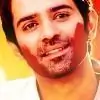
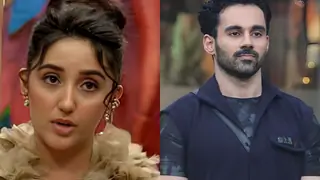


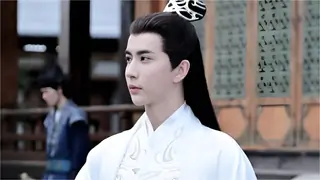


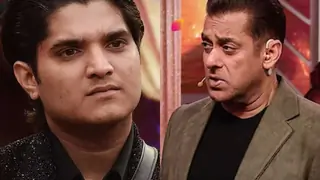

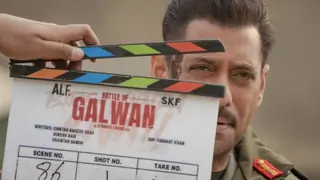


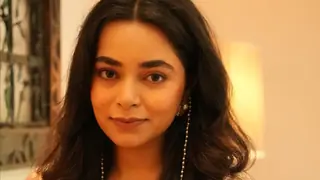


20